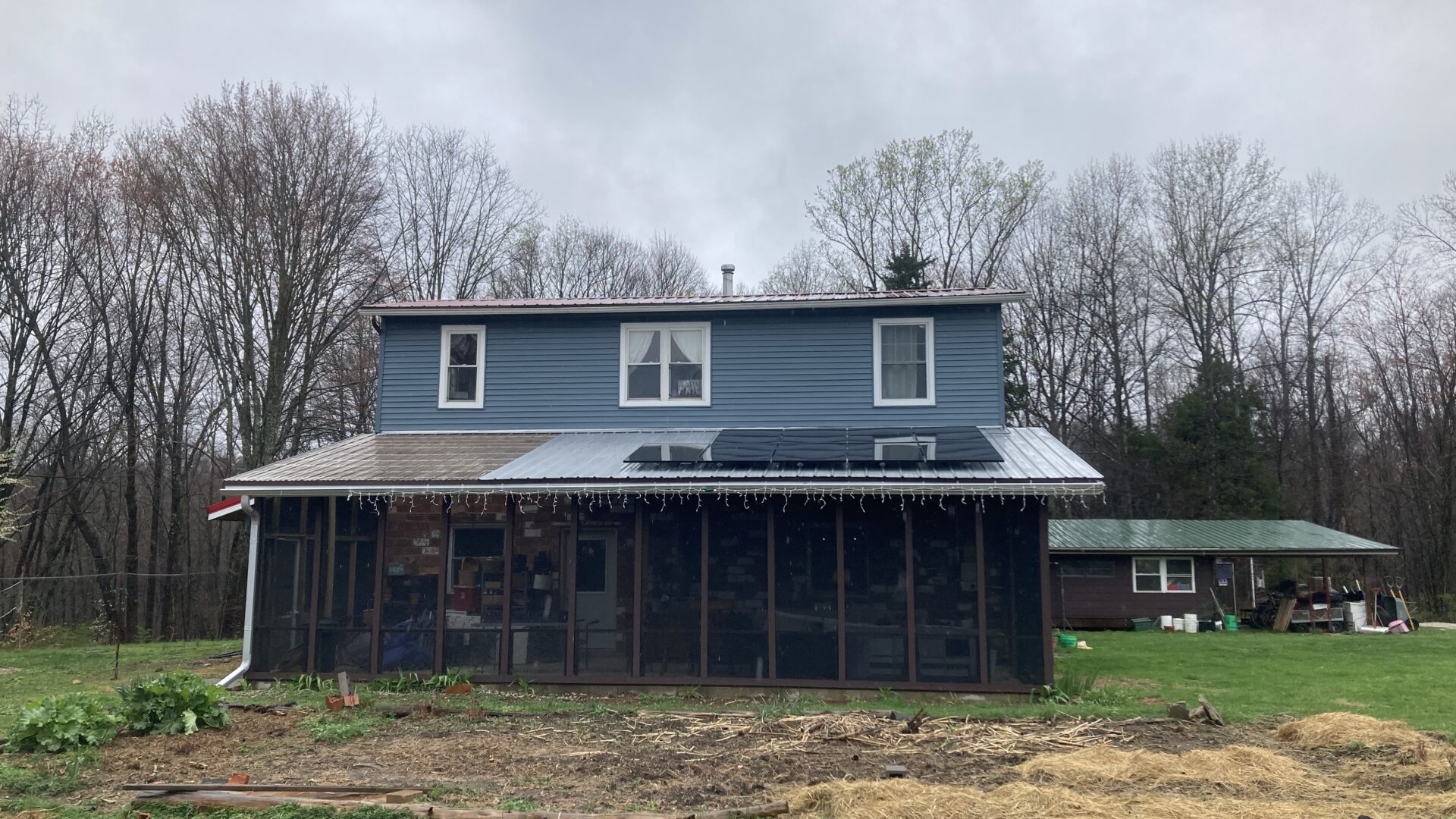Income-qualified grant helps Bloomington family and farm go solar
- IRA,
- Stories

Going solar helps families save money by taking control of where their energy comes from. By becoming distributed producers, homeowners can lower their monthly expenses and achieve higher energy resiliency.
The federal government offers tax credits to make solar more affordable, but these incentives require sufficient taxable income to be advantageous. As a result, income-qualified families, who might benefit most from savings on their monthly electric bills, have lacked access to solar.
In Bloomington, Indiana, a nonprofit organization called Indiana Solar for All (ISFA) is helping to bridge this gap. Between 2018 and 2022, ISFA helped 48 families go solar through donation-funded grants. Laura Lasuertmer’s family was one of them.
Common Home Farm is a living community located 10 miles north of downtown Bloomington, Indiana. Laura’s family of four and two other adults live on the property and help manage the operations year-round. In the warmer months, they also support farm interns and individuals experiencing housing insecurity.
Since moving to the farm six years ago, Laura and her family have stayed busy — renovating a garden shed into a home, reclaiming land from invasive species, working jobs, and raising kids. Solar fits neatly into the vision for the farm, but not its financial realities. “It is not in our budget to buy solar panels, that was very far … down on the list — behind installing a bathroom,” said Laura. So, she applied for assistance through ISFA.
ISFA identifies and qualifies households to receive donated or reduced-cost solar arrays in return for fulfilling volunteer labor commitments. Participants help install solar systems for themselves and other members of the group, with supervision from professional installers. Laura’s family was approved and received a 3-kilowatt array at no cost, aside from the sweat equity they put in.
Solar is helping Laura’s family power the farm with clean, renewable energy and save money on their monthly utility bills. Lowering their operating costs means Laura and her husband can direct more energy toward growing food and spending time with their kids. The opportunity to benefit from an income-qualified program like ISFA was crucial to realizing this goal; otherwise, “it would not have been within reach at all.”
As a proud producer of clean energy, she hopes to see access expanded to more families like hers. “For anybody … who is low income, having a way to reduce one of your monthly expenses kind of permanently is a game changer. You can now afford … better daycare or a summer camp for your kids,” said Laura. “I think that our elected officials need to be thinking really creatively about how they can help low-income earners to reduce expenses.”
Laura’s plea is prescient as solar opponents in Congress push to eliminate pro-solar investments like the federal Solar For All program (SFA). SFA, which is distinct from the nonprofit ISFA, will significantly increase the number of income-qualified households that can benefit from solar energy. Through the program, a coalition of Indiana organizations and commissions was awarded nearly $117.5 million to help expand equitable access to solar in the state. These funds would create jobs and boost local economies by providing a permanent solution to high energy bills. Now, they are at risk of never reaching the Hoosiers they were intended to support.
Local programs like ISFA have demonstrated the benefit of expanding solar access to income-qualified families in Indiana. Federally backed initiatives like SFA can take this proof of concept and exponentially increase the scope of households that benefit. Laura hopes both models will continue to helping access distributed sources of power and experience the benefits of energy independence.
Whether it’s through local programs or federal ones, Laura wants more families in Indiana to access distributed sources of power and experience the benefits of energy independence.
Act Now: Urge Congress to protect solar energy tax credits for all Americans
Solar energy is garnering support from both sides of the aisle. You can help keep up the momentum by making it loud and clear to your Senators and Representatives that Americans support federal solar investments.
Some members in Congress want to repeal successful policies that have made going solar more affordable for American families and businesses. Please use the form on this page to tell your federal representatives that you support smart investments, like the 30% solar tax credit.
Personalize your message!
If you have solar, explain how it is lowering and controlling your household’s energy costs. If you don’t yet have solar, tell them how these investments will make solar accessible for people like you.
Get the latest on solar straight to your inbox.
Fight for your solar rights.
Everyone has the right to go solar. Spread the sunshine nationwide and in your local community by taking action, joining events, and more.